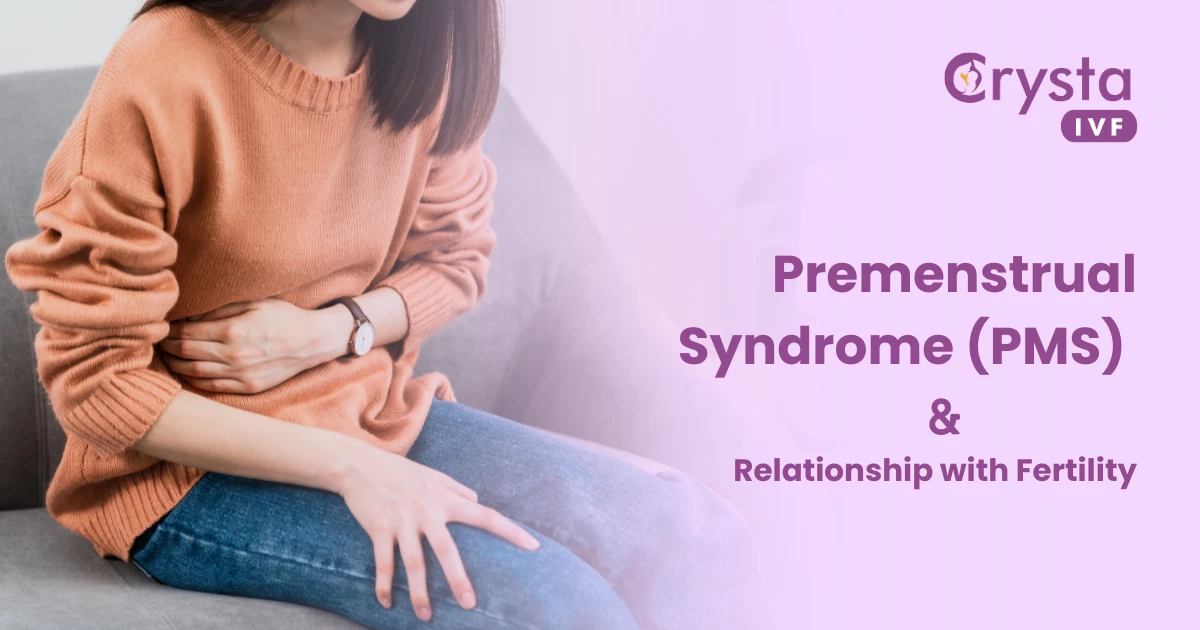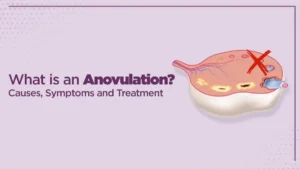Premenstrual Syndrome, or PMS, refers to the collection of physical, emotional, and behavioural symptoms experienced by women in the days or weeks leading up to their menstrual period. These symptoms can vary widely in severity and can impact a woman’s overall well-being. There’s often confusion surrounding whether PMS affects fertility or serves as a sign of infertility. This article aims to shed light on the nature of PMS and its relationship with fertility and dispel some common misconceptions.
Visible Symptoms of PMS:
- Physical: Bloating, breast tenderness, headaches, fatigue, cramps, acne
- Emotional: Mood swings, irritability, anxiety, depression, difficulty concentrating
- Behavioural: Changes in appetite, sleep disturbances, decreased libido
The exact cause of PMS remains a bit of a mystery, but it’s largely attributed to the fluctuating levels of hormones, particularly estrogen and progesterone, during the menstrual cycle. These hormonal shifts can affect brain chemicals like serotonin and dopamine, leading to the emotional and physical changes we experience.
Does Premenstrual Syndrome Affect Fertility?
Experiencing PMS does not necessarily indicate any kind of problem with fertility. PMS is a common occurrence among women who’ve hit their reproductive age and is not inherently linked to infertility. However, certain severe symptoms of PMS might indirectly affect fertility by causing discomfort or disrupting normal daily activities, which could impact a woman’s desire or ability to engage in sexual intercourse during her fertile window.
Signs of Infertility vs. PMS:
Infertility refers to the inability to conceive after years of regular, unprotected intercourse. PMS, on the other hand, refers to the range of cyclical symptoms that occur before menstruation. It’s important to know the difference between the two:
- Timing: PMS Symptoms typically occur in the days leading up to the menstruation and subside once the period begins. Infertility, on the other hand, is diagnosed after unsuccessful attempts to conceive over an extended period.
- Severity and Persistence: PMS symptoms can vary in severity but usually temporarily lasting a few days to a couple of weeks. On the other hand, infertility involves the consistent inability to conceive over an extended period.
- Medical Diagnosis: Diagnosis of PMS is primarily based on reported symptoms. At the same time, infertility requires a medical evaluation that may involve tests for both partners to identify any underlying issues affecting fertility.
Managing PMS and Fertility:
While PMS itself doesn’t directly impact fertility, managing its symptoms can contribute to a woman’s overall well-being and potentially support fertility efforts. Here are some ways women can manage their PMS symptoms and increase their chances of fertility:
- Healthy Lifestyle: It is highly advised for women to regularly exercise, maintain a healthy and balanced diet, manage stress, and get adequate sleep. All these can help women alleviate PMS symptoms and support overall reproductive health.
- Medical Support: For women experiencing severe or disruptive PMS symptoms, consulting a doctor is advisable. There are various treatment options available, including lifestyle changes, medications, and hormone therapy, aimed at managing PMS symptoms effectively.
- Fertility Awareness: Understanding one’s menstrual cycle and identifying the fertile window can aid in optimizing the chances of conception. Tracking ovulation through methods such as basal body temperature charting, ovulation predictor kits, or monitoring cervical mucus changes can be helpful for couples trying to conceive.
Remember, it’s always best to consult your doctor before starting any new supplements or medications, especially if you’re trying to conceive. They can help you develop a personalized plan to manage your PMS symptoms and support your overall health and fertility.
Here are a few facts to remember:
- PMS is a normal part of the menstrual cycle for many women.
- PMS does not directly impact a woman’s ability to conceive.
- Certain PMS symptoms may indicate underlying fertility issues, so it’s important to be aware of the signs.
- Lifestyle changes and natural remedies can help manage PMS symptoms.
It’s wise to consult your doctor if your PMS symptoms are severe or if you’re concerned about your fertility. By understanding the nuances of PMS and its relationship to fertility, women can navigate their cycles with confidence and make informed decisions about their health and reproductive goals. Talk to your doctor, lean on your support system, and prioritize self-care to navigate the ups and downs of your cycle.
Juggling between PMS and infertility can be taxing for some women. Crysta IVF’s team of experienced doctors is dedicated to supporting women on their journey to motherhood. Our empathetic experts offer comprehensive care, a holistic approach, and tailored treatment unique to your needs. At Crysta, we believe in the power of knowledge. We provide all the information and guidance women require to make informed decisions best suited for them. Choose Crysta IVF not for the science but for the unwavering support and shared dream of bringing life into the world.




